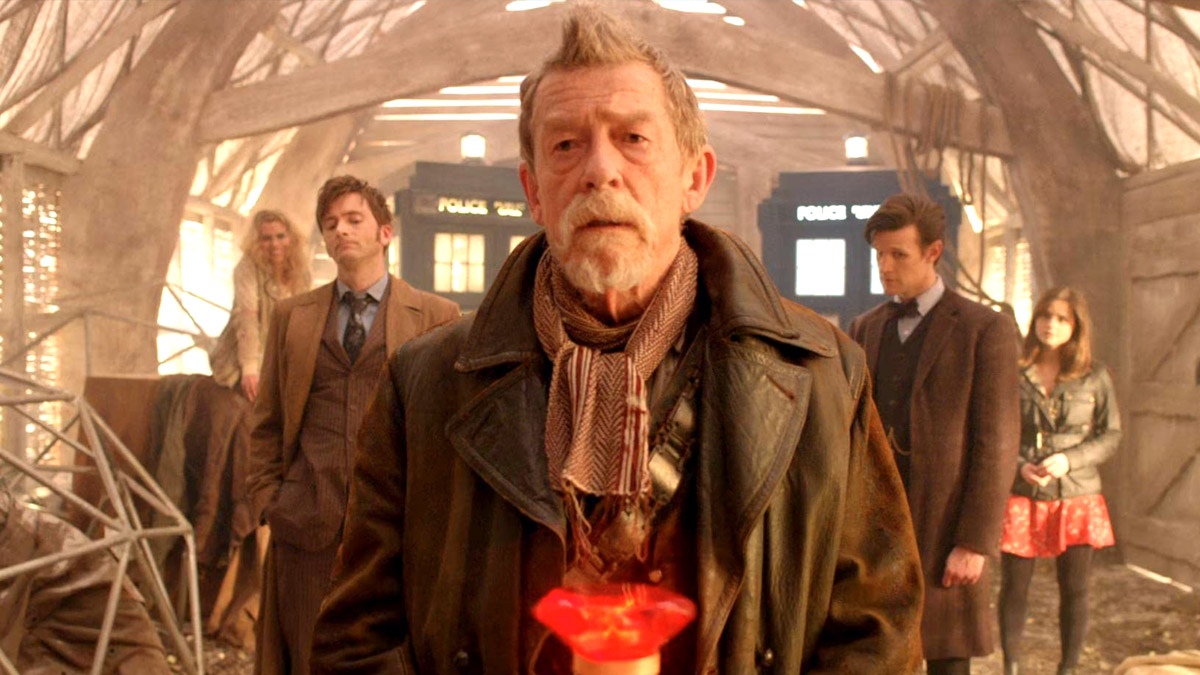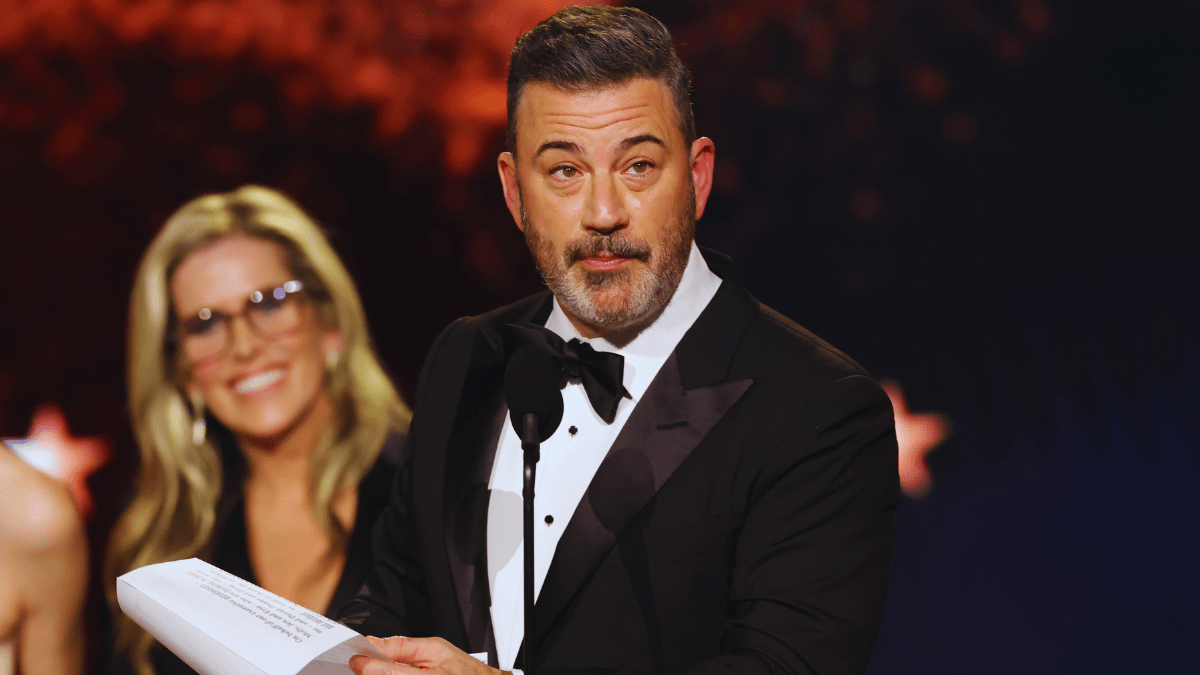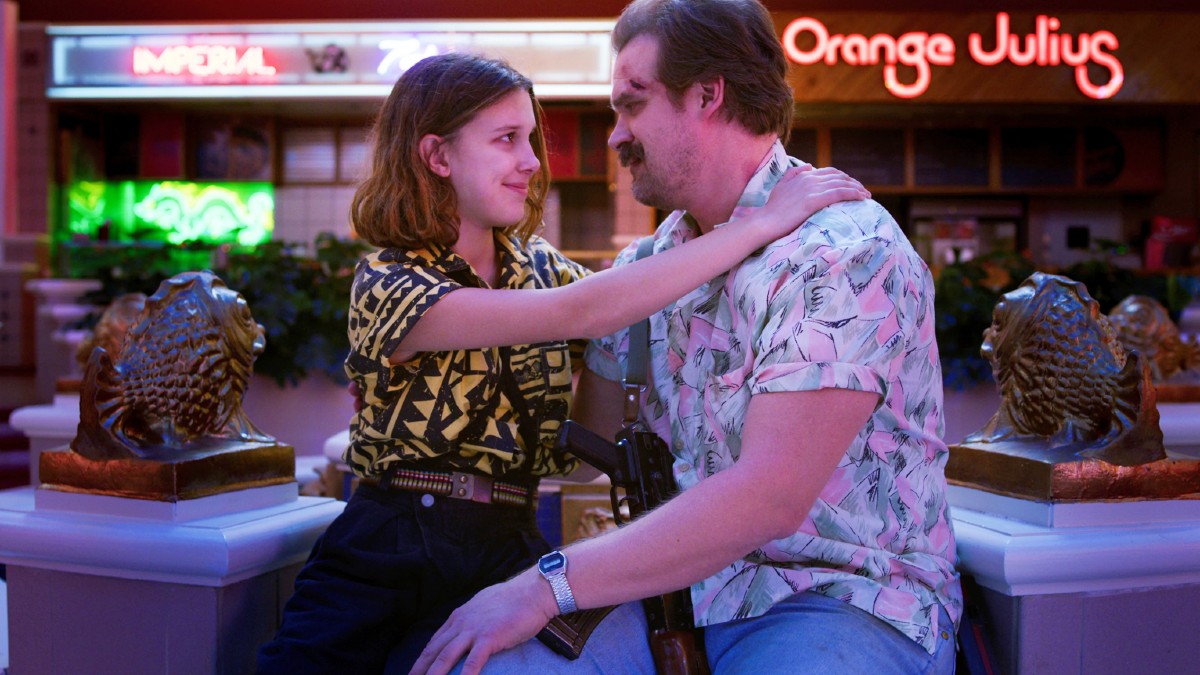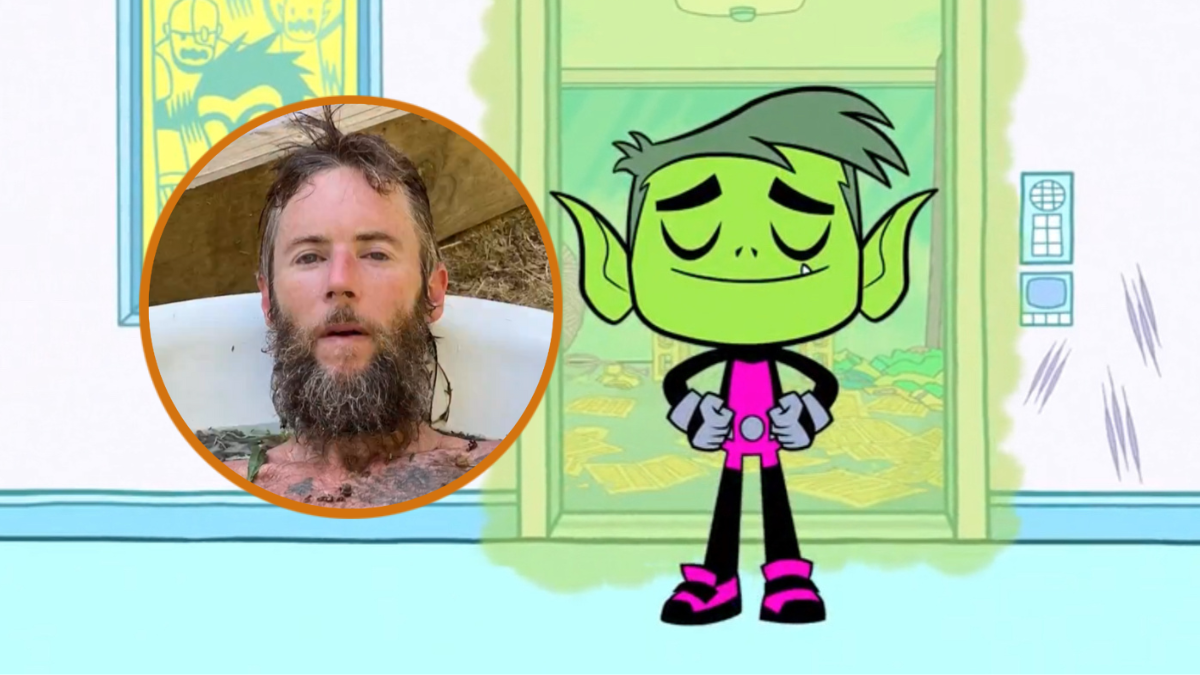Steven Moffat was the obvious choice to succeed Russell T. Davies as the showrunner of Doctor Who in 2010. The question was, could he maintain the quality of the stories he’d already contributed to the show?
Moffat did pick up those reins to steer the show through two Doctors and the all-important 50th anniversary. In doing so, he became Doctor Who’s most prolific writer with an astonishing 48 episodes and four mini-episodes in 12 years. For much of that, he was simultaneously running and writing Sherlock.
That said, the new level of intricately plotted arcs he brought to the show divided fans. He’s a divisive figure who, it’s fair to say, has served up some of the most significant and controversial moments in the show’s history.
Davies is kickstarting a new phase in Doctor Who that promises a bigger show and the chance for the franchise to cement itself as a worldwide phenomenon. Rumors abound that Davies has lured the prolific writer back to the show to repeat the magic. In preparation, here are the greatest stories Moffat has penned for Doctor Who so far.
10. The Angels Take Manhattan (2012)
Saying goodbye to companions is never easy, particularly when they’re so intricately tied to a Doctor’s incarnation. The seventh series was split into two parts, with episodes pitched as 45-minute blockbusters. Few delivered like The Angels Take Manhattan. The Weeping Angels are Moffat’s most famous monstrous creations. Here, the devious creatures are running a battery farm in 1930s New York. The fusion of noir pulp fiction, time traps, and the meaning of family (along with a giant Weeping Angel Statue of Liberty) makes a brilliant episode.
The balance between the breezy opening of friends enjoying life in the Big Apple and an emotional, twisty resolution is superb.
9. The Time of Angels / Flesh and Stone (2010)
The first episodes Matt Smith filmed as the Eleventh Doctor, and the fact his character is so on-point, is a credit to Moffat’s casting. This was the Angels’ much-anticipated chance to return to the show with their Aliens. It doesn’t fail. From a space heist to an action-packed siege in the catacombs of an alien planet where statues seem to be regenerating, it never lets up.
The Angels’ threat and obligatory new abilities are terrifying. Typical of Moffat, the two parts are markedly different, but in the middle, there is one of the show’s all-time best cliffhangers. Gifted with a wicked imagination and sense for non-narrative structure, Moffat doesn’t always deliver on his cliffhangers, but this is probably his best.
8. The Eleventh Hour (2010)
Moffat’s first episode as lead writer and a statement of intent. He links heavily to the show’s past, not least the debut of the Third Doctor, Spearhead from Space. It’s also a reaction to the previous five years that had frequently landed the Doctor in London. Here the Eleventh Doctor takes his time to meet Amy Pond in a small English village, complete with a critical duck pond.
The time-twisting beginning hints at the complicated and emotional adventures to come for the Eleventh Doctor, although the main threat feels a bit underpowered. Still, come the end, the Doctor’s introductory speech as he first dons his familiar costume shows that the chance to write a newly regenerated story had rattled around Moffat’s head for years.
7. Heaven Sent (2015)
A gift for Peter Capaldi, Heaven Sent is a supreme one-person show. Arriving via transporter in a castle isolated in a vast sea, the Doctor must uncover a way to escape as an unstoppable veiled figure from his childhood nightmares stalks him. Of course, he’s always caught in what’s revealed to be a time loop in the magically reconfiguring torture castle, but how many times can the Doctor die before discovering the truth?
This intense episode arrived after the wallop of losing his companion, Clara. In the expert hands of director Rachel Talalay, backed by an astonishing score from Murray Gold, it becomes a mediated, focused, horrifying dive into the Doctor’s reason for being. Everything comes together in one of the show’s finest and most experimental hours.
6. The Empty Child / The Doctor Dances (2005)
Doctor Who’s first series and the only one to feature the Ninth Doctor, was a slow burner. All the early episodes are solid, but it took until the Moffat-penned two-parter to kick into gear. It is the scary, family-fun kids had heard about from their parents and grandparents. Plenty in this tale of Blitz-era London stalked by a small boy in a gas mask singing, “Are you my mummy?” will make you hide behind a sofa.
It has the introduction of charismatic Captain Jack Harkness and a superb cliffhanger that would become a well-known Moffat trope. It also has a legendary and heart-warming conclusion that demonstrates the immense potential of Doctor Who.
5. The Girl in the Fireplace (2006)
Moffat’s second story mashed the future and past with one of the show’s great explorations of the hazards of time travel. Many classic components are here, including the threat of new creations: disturbing clockwork robots (cue: more Moffat tropes).
The brilliant sci-fi twist behind the story is one of Moffat’s finest. But the relationship drawn between David Tennant’s tenth Doctor and Sophia Myles’ Madame de Pompadour in 18th century France makes it truly memorable. It’s more than a dry-run for The Time Traveler’s Wife meeting between the Eleventh Doctor and Amy Pond.
4. A Christmas Carol (2010)
So often, Chares Dickens’ A Christmas Carol is picked up by shows and movies as a lazy template — not in Moffat’s first festive episode, which has the confidence to wear the name with pride. Moffat adds flying sharks and a crashing spaceship to his take as the Eleventh Doctor is cast as the ghost of past, present, and future. Michael Gambon is the Scrooge-like Kazran Sardack, whom the Doctor needs to convince to change to save thousands of people.
There are fascinating questions about manipulating memories and cause and effect, but mostly, it’s a beautifully filmed and emotional hour of first-class Doctor Who.
3. World Enough and Time / The Doctor Falls (2017)
Series 10 was arguably Moffat’s greatest season. Pairing a more avuncular professor-like Twelfth Doctor with Nardole and Bill Potts as he attempted to redeem his frenemy Missy made for a hugely watchable arc. It culminates in this devastating two-parter which rips the dysfunctional family apart while twisting through the show’s history.
It was a stunt to return the original Mondasian Cybermen, a distinctive, haunting menace not seen since the First Doctor’s regeneration in 1966’s The Tenth Planet, but it paid off. They are joined by the brilliant inclusion of the Two Masters as John Simm’s Time Lord returns to show Missy the error of her ways and a fantastic sci-fi concept running under the story. As usual, it’s the emotion of the Doctor risking everything to save people, even when the odds are stacked against him, that packs a punch. It wasn’t quite the end of the Twelfth Doctor, but it was his finest hour.
2. Blink (2007)
It’s totally Doctor Who that one of its best episodes doesn’t feature the Doctor very much at all. Adapting a short story he’d initially written for a Christmas storybook, Moffat crafted a classic of time-travel entertainment.
The story is told through the eyes of Sally Sparrow (played by Carrie Mulligan), who finds herself in the path of Weeping Angels as her friends are picked off. A mysterious Doctor communicates with her through scribbled messages under wallpaper and DVD Easter eggs. The laugh-out-loud comic lines, tight plotting, and emotional scenes are there. Moffat’s significant mark was doing the almost impossible — creating a scary monster that could rival the Daleks and Cybermen. The Angels are perfect as ruthless lonely assassins as a Who invention — a nightmarish twist on something you see every day that feels like it’s been in the show for years.
1. The Day of the Doctor (2013)
Creating the Weeping Angels was impressive, but nailing the 50th-anniversary celebration episode stands as Moffat’s greatest achievement. It wasn’t all plain sailing. When Ninth Doctor Christopher Eccleston declined the offer to return, Moffat created a shadowy lost incarnation who could represent the Time War and dared to cast John Hurt.
The Day of the Doctor does what Doctor Who loves to do — take a part of the show’s behind-the-scenes history, its 16-year hiatus that had been neatly explained away as the devastating Time War, and find a way to link two eras of the show. There’s much to enjoy in this special, including the banter between Doctors, the return of Gallifrey, and the chance for the Time Lord to redeem himself. Daleks, Zygons, and even the Twelfth Doctor’s eyebrows set a new bar for anniversary specials.











Published: Mar 14, 2023 11:22 am